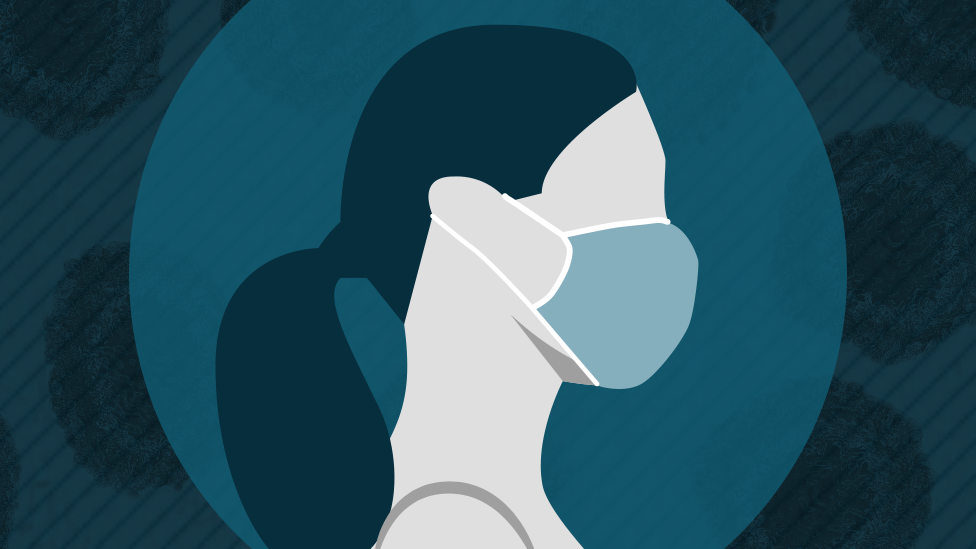Coronavirus: Lockdown to ease further in England from Saturday
- Published
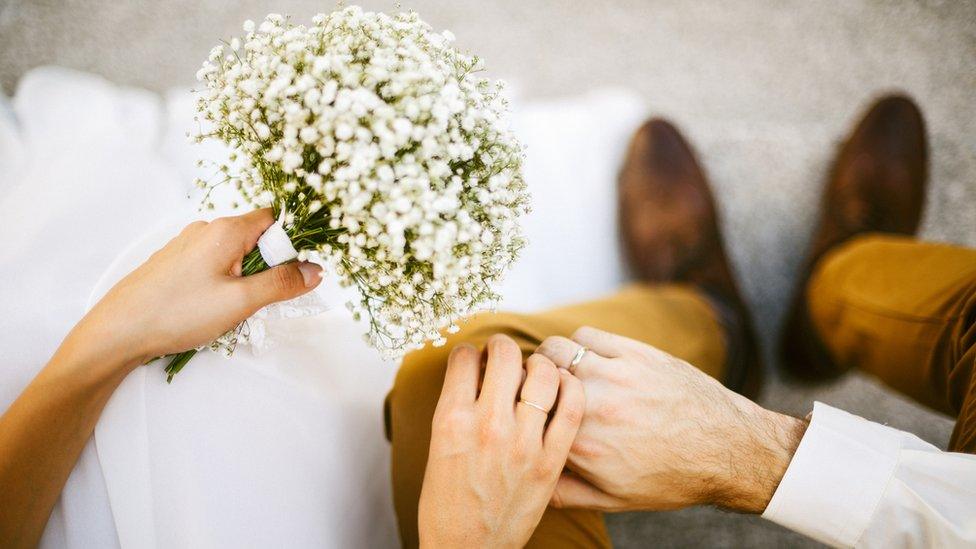
Newlyweds will be able to celebrate their nuptials with a wedding reception in the form of a sit down meal for up to 30 guests
More beauty treatments, small wedding receptions and live indoor performances will be able to resume in England from Saturday, as lockdown rules are eased.
Bowling alleys, casinos and soft play centres will also be able to reopen, PM Boris Johnson has announced.
It comes as the government introduces bigger fines for failing to wear a mask in places where it is compulsory.
Meanwhile, quarantine measures have been imposed on more countries, including France and the Netherlands.
The easing of lockdown rules is now due to come into force on Saturday, after being postponed from 1 August due to concerns about a slight increase in the number of people testing positive for coronavirus in England.
Last week, figures from the Office for National Statistics showed this may be levelling off.
However, the latest government figures released on Friday, external showed the number of daily positive tests in the UK was the highest it has been since 14 June.
In the 24-hour period up to 09:00 BST, there were a further 1,441 confirmed cases, taking the total number to 316,367.
Under the latest changes:
Indoor theatre, music and performance venues will be able to reopen with socially distanced audiences
Wedding receptions in the form of a sit-down meal for up to 30 guests will be permitted
The piloting of a small number of sporting events to test the safe return of spectators will resume, commencing with the final of the World Snooker Championship at Sheffield's Crucible Theatre over the weekend
Casinos, bowling alleys, skating rinks and soft play centres will be allowed to reopen
"Close contact" beauty services such as facials, eyebrow threading, eyelash treatments, make up application and microblading will resume
Pilots will take place at conference venues ahead of the expected resumption of business events from 1 October at the earliest
The new guidance will not apply in areas where local lockdown measures are in place, the government said.
Local lockdown rules vary from place to place, but since July measures have been introduced in Leicester, Preston, East Lancashire, parts of West Yorkshire. Greater Manchester, and Aberdeen.
The Department of Health said restrictions on household gatherings in parts of the North West, West Yorkshire, East Lancashire and Leicester will continue.
The latest data does not show a decrease in the number of cases per 100,000 people in the area and shows a continued rise in cases in Oldham and Pendle, while numbers remain high in Blackburn with Darwen, the department said.
The measures will be reviewed again next week.
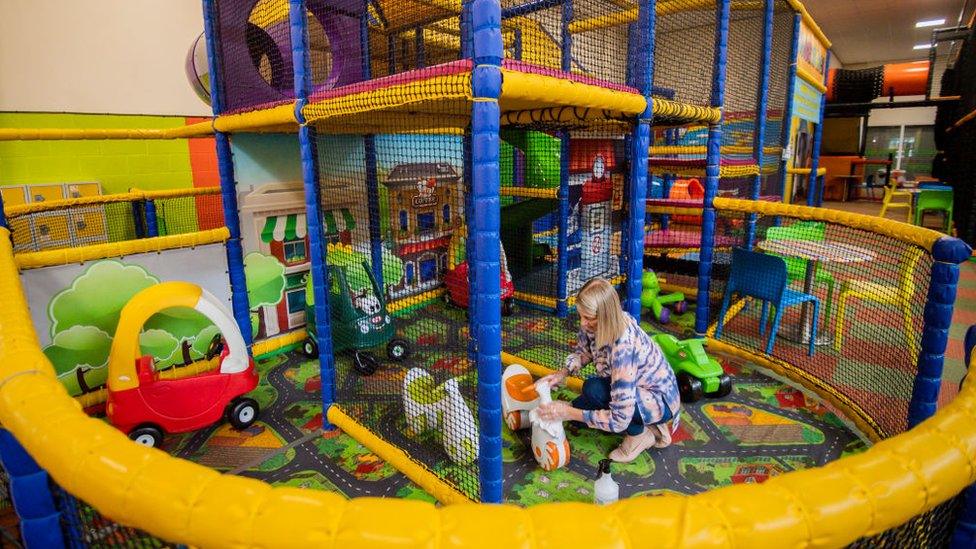
Soft play centres are among the venues able to reopen from 15 August
Devolved administrations in Scotland, Wales and Northern Ireland have the power to set their own timings for the easing of restrictions.
The prime minister said that plans to open up more of the economy this weekend "will allow more people to return to work and the public to get back to more of the things they have missed".
But Mr Johnson reiterated a warning that the government "will not hesitate to put on the brakes if required, or to continue to implement local measures to help to control the spread of the virus".
New guidance will also mean that staff offering "close contact" services, including hairdressers, will now have to wear a face mask as well as a clear visor.
The government said the move, which follows new evidence from the scientific advisory group for emergencies (Sage) is aimed at protecting customers and staff from respiratory droplets caused by sneezing, coughing, or speaking.
It also applies to businesses that operate remotely, such as massage therapists working in people's homes, and those learning in vocational training environments.
Nightclubs and discos are among the venues that remain closed in law.

SOCIAL DISTANCING: What are the rules now?
TESTING: Who can get a test and how?
GLOBAL SPREAD: Tracking the pandemic

On Thursday, France reported 2,524 new coronavirus cases in 24 hours, the highest daily increase since its lockdown was lifted in May.
Under current guidance, people who refuse to wear a face covering where it is required face a £100 fine, which can be reduced to £50 if paid within 14 days.
The new enforcement measures will see that penalty repeatedly doubled for subsequent offences, up to a maximum of £3,200.
"Most people in this country are following the rules and doing their bit to control the virus, but we must remain focused and we cannot be complacent," Mr Johnson said.
"That is why we are strengthening the enforcement powers available to use against those who repeatedly flout the rules."

Analysis
By Tom Symonds, home affairs correspondent
Just as cases of Covid-19 rose in the spring, peaked and fell, so has the use by police of fines to enforce social distancing restrictions.
This means that instead, officers have increasingly preferred to "engage, explain and encourage" in the police jargon.
It is difficult and sometimes risky work. "Encouraging" large groups of young people to leave illegal parties has led to violence. Senior officers say they are prepared to prosecute the organisers.
However, in general, police believe they have got people to follow the rules hundreds of thousands of times without handing out fines.
The question is whether local breakouts of the virus, and the risk of a "second wave" will increase the pressure for a tougher approach.
As countries are added to the list of those from which returning travellers have to quarantine, there could also be questions about whether there is a realistic risk of catching people who refuse to do so.

In England, face coverings are mandatory in many indoor settings, including public transport, shops and museums, with some exemptions for children or on medical grounds.
Transport for London and British Transport Police have already made 91,501 interventions based on present face coverings guidance, the government said - preventing 4,397 from boarding, asking 3,030 to leave the network and issuing 341 penalty notices.
There will also be a clampdown on illegal gatherings of more than 30 people, which could see those responsible hit with spot fines of up to £10,000.
Face coverings are mandatory in England in all shops
According to the government, forces across England and Wales have already stepped up patrols to prevent illegal gatherings in areas of concern, such as Leicester and Greater Manchester, where it said deployments have sometimes been larger than on New Year's Eve.
Last weekend, West Midlands Police shut down 125 parties and raves - and closed a pub - taking action to stop illegal gatherings and anti-social behaviour across the region.
Further detail on the new enforcement measures is to be set out in the coming week.
Home Secretary Priti Patel said she would not allow progress against the virus to be undermined by "a small minority of senseless individuals".
"These measures send a clear message - if you don't cooperate with the police and if you put our health at risk, action will follow."

ALHAN'S WORLD: Health tips to keep you in good shape in these socially distanced times
WAKE UP TO MONEY: Bracing for the Covid recession


Are you getting married this weekend? Or are you preparing to reopen or go back to work? Share your stories by emailing haveyoursay@bbc.co.uk, external.
Please include a contact number if you are willing to speak to a BBC journalist.
WhatsApp: +44 7756 165803
Tweet: @BBC_HaveYourSay, external
Please read our terms & conditions and privacy policy
- Published31 July 2020
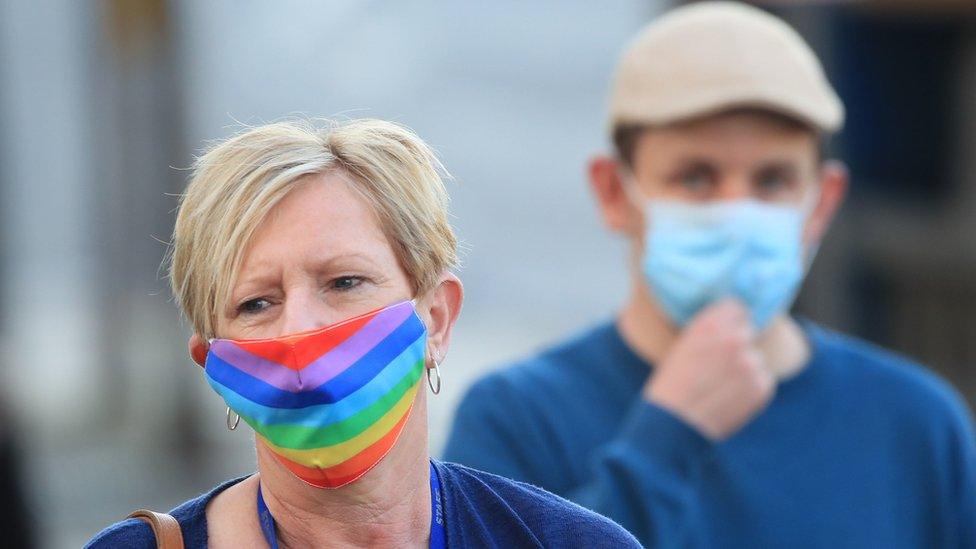
- Published12 August 2020
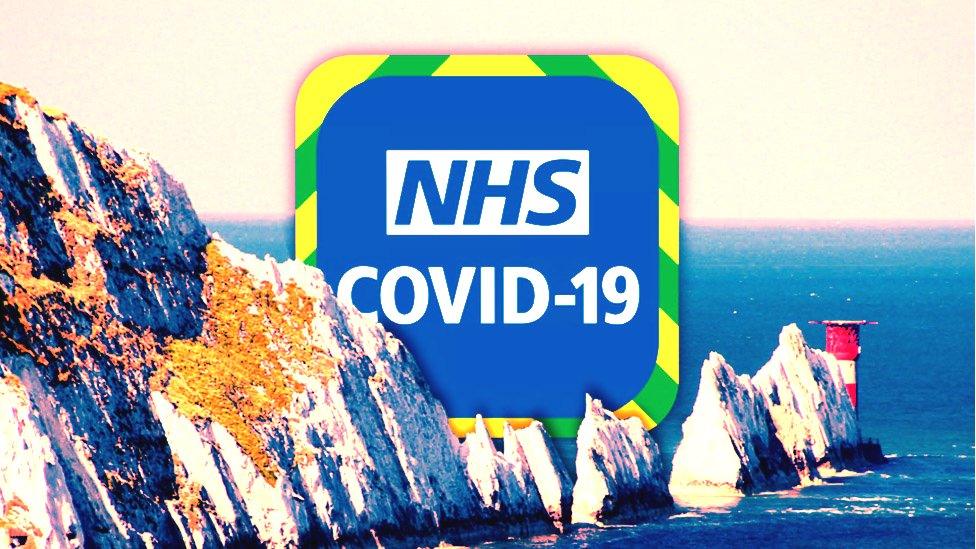
- Published16 March 2022
